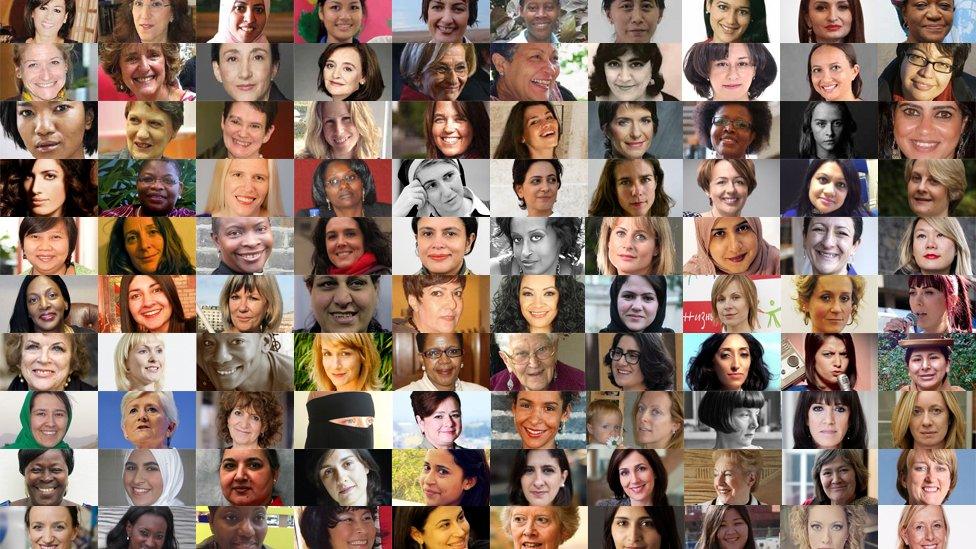100 Women 2016: What to look forward to
- Published
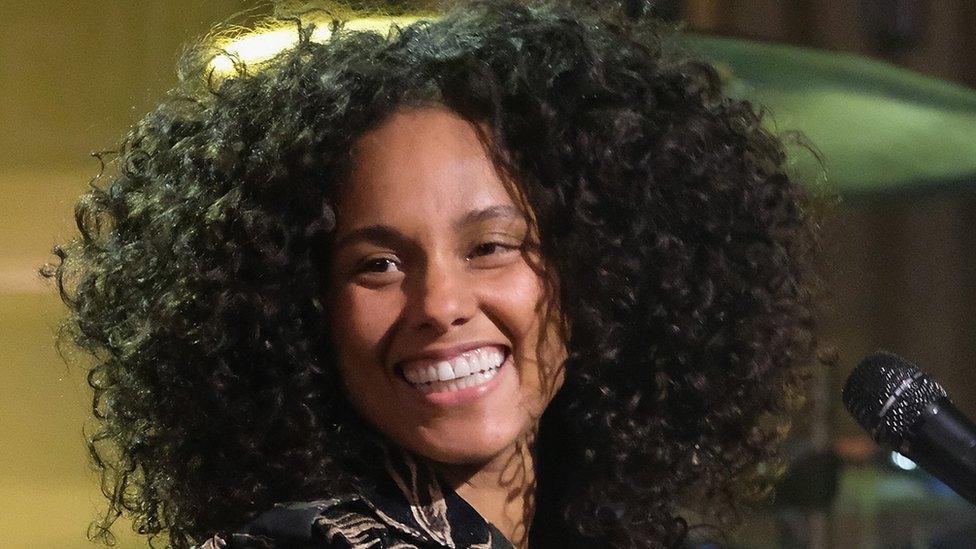
Alicia Keys is one of the high-profile women who features in our season
We're back and bigger than ever! For the next three weeks we will bring you the stories of our 100 Women: groundbreaking moments of defiance, debates on the inclusivity of feminism and conversations with world famous leaders in music, sport and politics, as well as with other less well-known voices.
Here are just a few of the things you should watch out for:
Singer-songwriter Alicia Keys talks to us about race, Donald Trump, bringing up boys and why she's determined to look the way she wants to look.
Simone Biles tells us about becoming the greatest gymnast of all time, about growing up in Obama's America, and about how she is coping with her new-found fame.
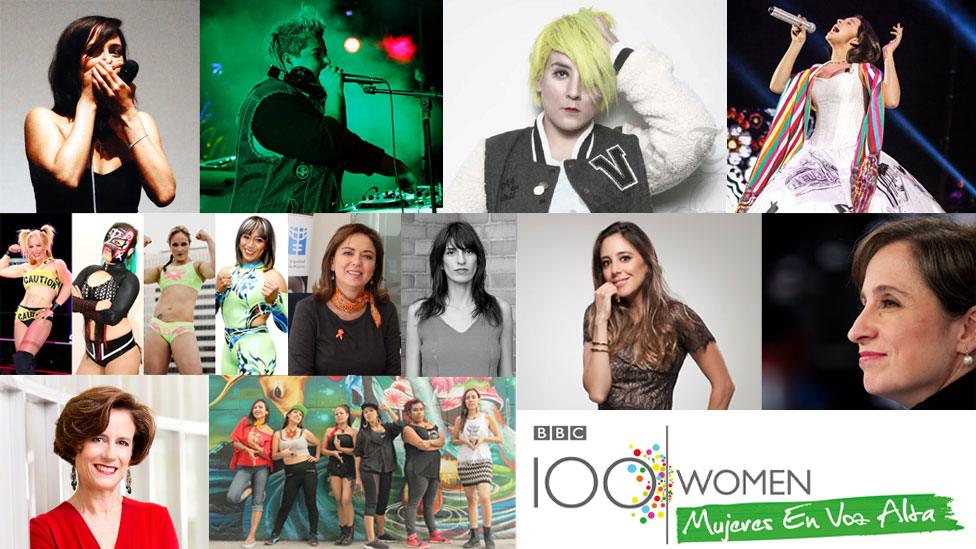
100 Women's first live festival is in Mexico City on 24 November
BBC 100 Women will be hosting our first live festival in the heart of Mexico City, featuring music, art, dance and debate. The Mexico festival will also showcase the BBC's first virtual reality experience. Based on testimonies from rescued women, the documentary allows you to "live" the story of a woman who is trafficked by cartels and is just about to be rescued.
In July a young American woman in a flowing dress stood with her arms crossed facing down a line of heavily armed police. The woman behind the now-famous photograph is Ieshia Evans.
She talks to us about protest and resistance. Ieshia is part of our series on five women defying expectations and boundaries around the world.
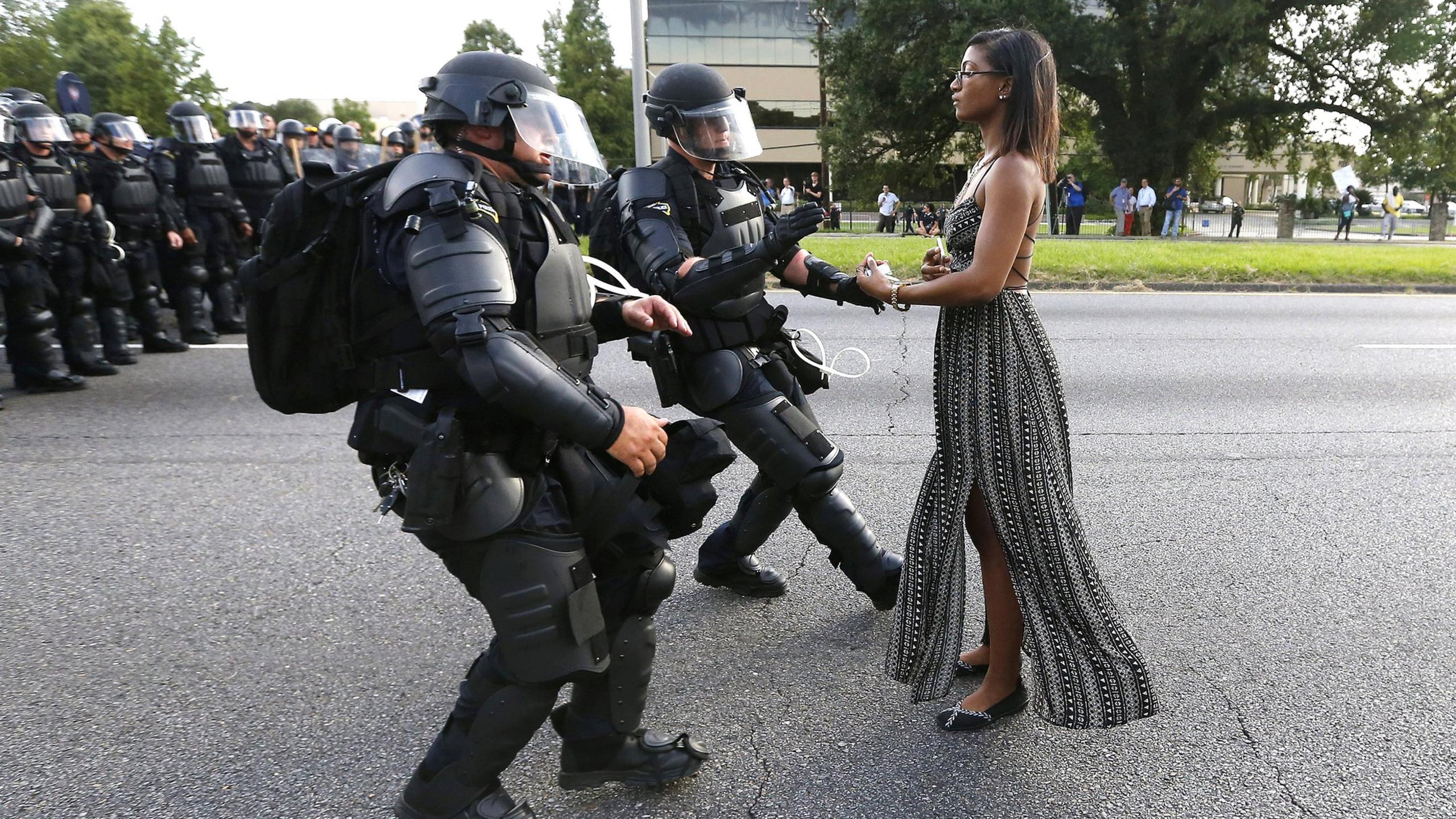
The iconic image of Ieshia Evans during this summer's protests
In a special discussion, we will be tackling a pertinent question: Does Feminism include all women? Kimberle Williams Crenshaw, Heather Rabbatts and Gail Lewis explore whether the feminist movement has succeeded in engaging all women regardless of race, ethnicity, and sexuality. This is a conversation in three parts you don't want to miss.
BBC Asian Network will also be taking part in our series of debates, asking: "Is the glass ceiling raised higher for British Asian Women?" Join the conversation #100Women


What is 100 women?
BBC 100 Women names 100 influential and inspirational women around the world every year. We create documentaries, features and interviews about their lives, giving more space for stories that put women at the centre. We continue to ask:
How are women faring in the 21st-Century economy where you live?
Will women take on a bigger role in politics and business? Or is there a "global glass ceiling"?
What do you see as the biggest risks women face? What about the biggest opportunities?
And - of course - what about the media? Do we misrepresent women? Do we tell their stories properly?
We want YOU to get involved with your comments, views and ideas. You can find us on: Facebook, external, Instagram, external, Pinterest, Snapchat, and YouTube.
Spread the word by sharing your favourite posts and your own stories using #100women

Meet the Mother of Trees. We visit 105-year-old Saalumarada Thimmakka who has planted and nurtured hundreds of banyan trees in rural India, in a bid to improve her environment and combat the stigma surrounding her childlessness.
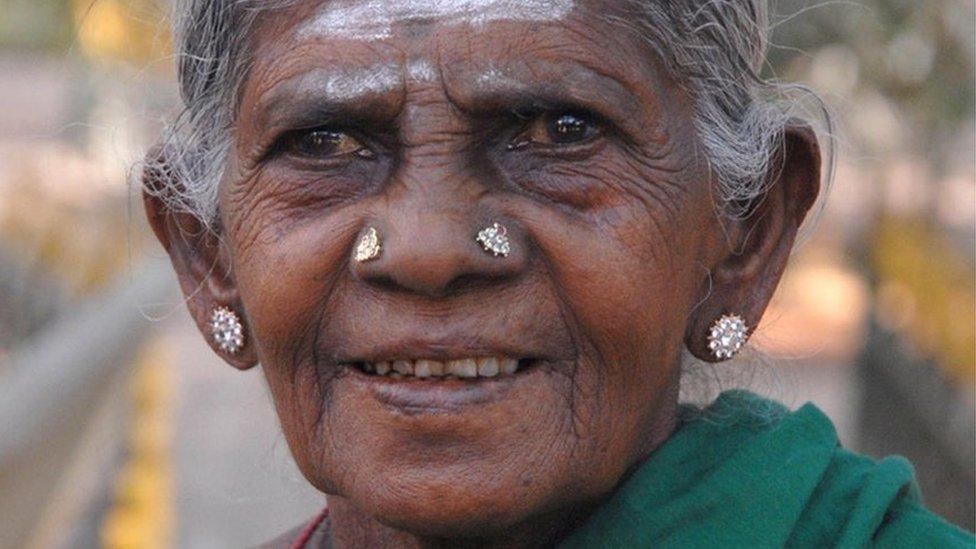
Saalumarada Thimmakka nurtures hundreds of trees in India
We are ending our season by asking: Is the internet sexist? Wikipedia is the seventh most popular site in the world but only 15% of Wikipedia editors are women and fewer than 15% of its notable profiles are of women.
We are joining up with Wikipedia to hold a 12-hour edit-a-thon to encourage more women to edit and write articles and profiles about women.
On 8 December we want you to get involved- join our site, learn how to edit and join the hashtag #100womenwiki
- Published17 November 2015
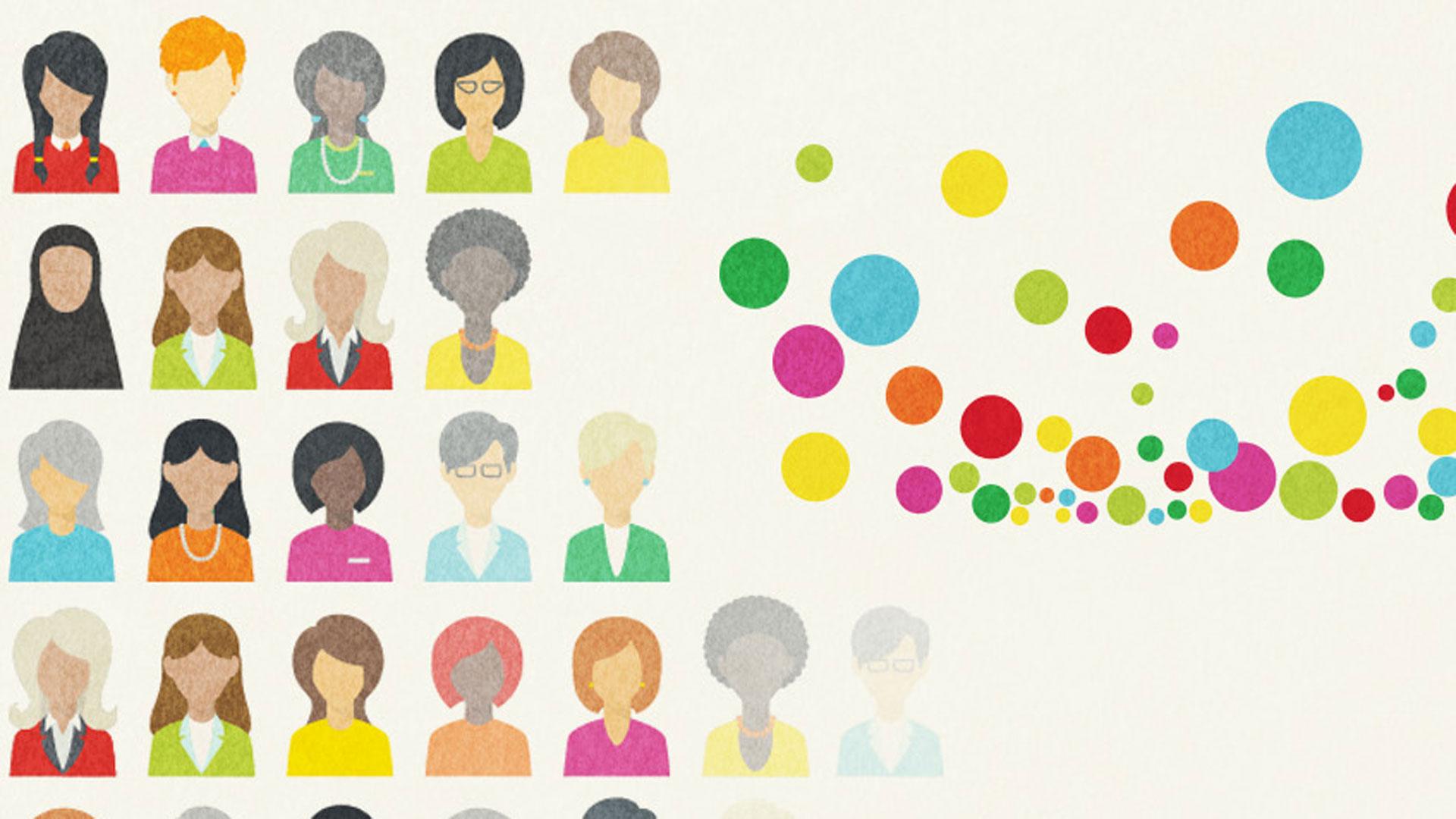
- Published26 October 2014
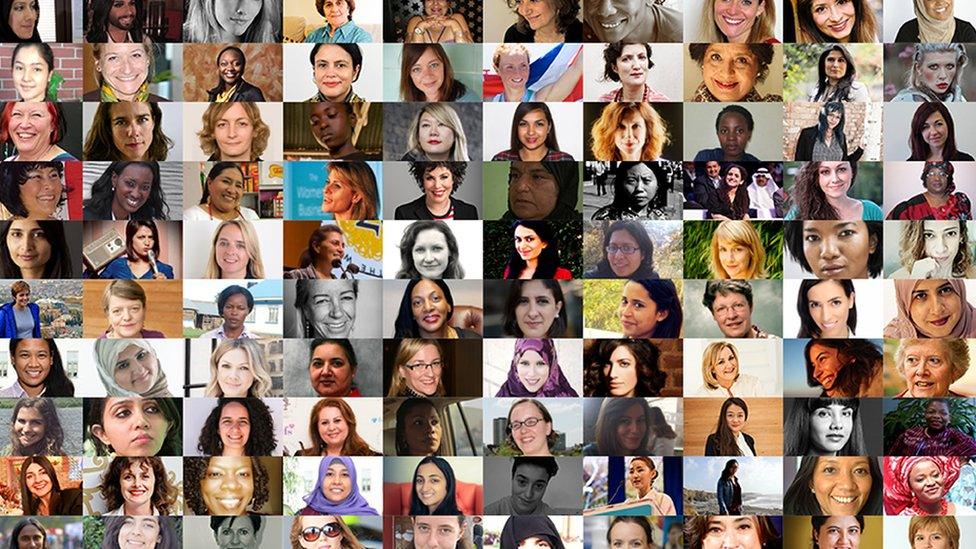
- Published22 November 2013
